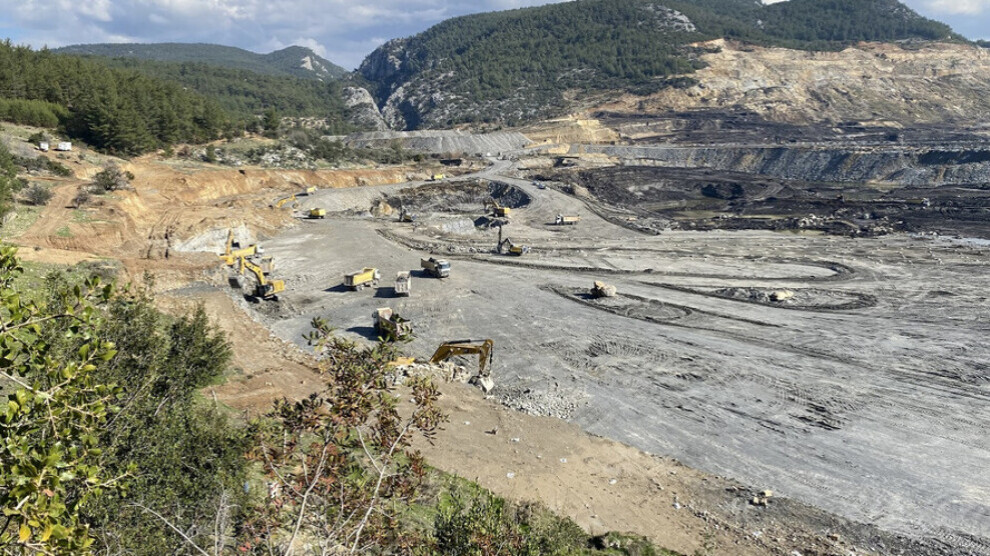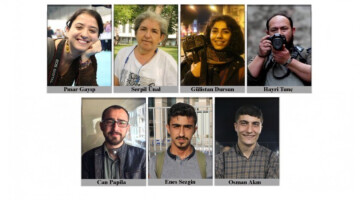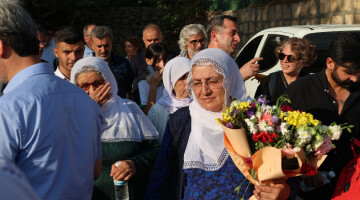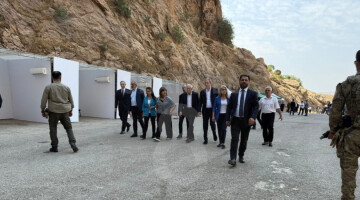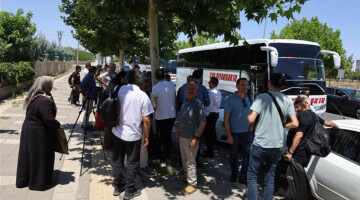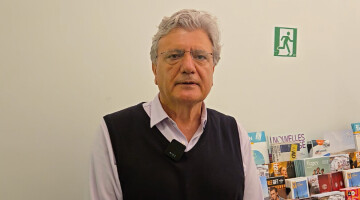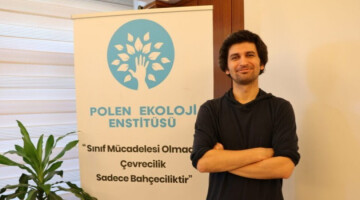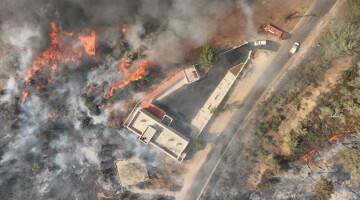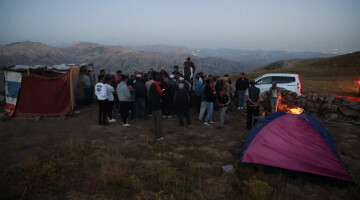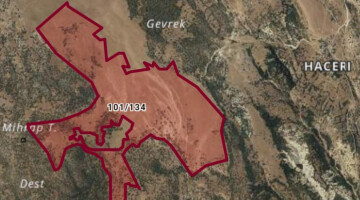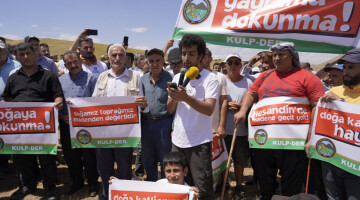In the 22 years of the AKP rule, one of the most crucial topics in ecological disaster is the Hydroelectric Power Plants (HEPP). According to official data, there are more than a thousand HEPPs in Turkey, including those currently under construction and those that have been authorised for construction; 764 of which are in active operation. Of these, 146 are dammed and 618 are run-of-the-river hydroelectric power plants. The vast majority of HEPP projects continue despite judicial decisions against violations of public interest and protests. Contractor companies are often exempted from Environmental Impact Assessment (EIA), or the procedures for obtaining the necessary information and consent in the EIA process are deemed to be completed with notifications to the mukhtars in neighbourhoods or villages.
The transfer of publicly owned rivers and streams to the private sector for the ‘operation’ of electricity generation has become a widespread rent-seeking policy during the AKP era. Despite the lawsuits for stay of execution filed by people who cannot irrigate their lands, feed their animals and whose crops are burnt due to the increased amount of salt in their lands as a result of evaporation, together with ecological organisations, the AKP has not given up on its rent policies.
HEPPs AS A PROJECT OF PLUNDER
In Kurdistan, on the other hand, the construction of HEPPs was accelerated in order to serve security policies and to contribute to the depopulation of certain regions and the redesign of demography. HEPPs constitute an area where ecological destruction and the concept of special war have come together. Halfeti and Hasankeyf, known for their thousands of years of history, have been flooded due to the AKP's HEPP and dam projects. In recent years, the authorisation for the construction of more than 10 HEPPs on the Botan Stream alone has led to landslides in the region, rendering fertile agricultural lands unusable. Hundreds of people were forced to leave their homes and land due to landslides and excessive salinisation of their land.
The number of mines and quarries operating in Kurdistan and Turkey is estimated to be close to 200 thousand. In the 11-year period between 2002, when the AKP came to power, and 2013, 85 thousand quarries were granted licences. It is estimated that more than 100 quarries and mines start operating every month in Turkey due to the facilitation of licensing procedures in Turkey and Kurdistan, amendments to the Mining Law, the fact that the mineral reserves known as UMREK codes are only valid for 4th group mines, the possibility to open mines without missing documents and EIA reports, turning a blind eye to the operation of unlicensed mines, and the possibility to continue the operation of mines with a suspension of activity by ‘completing their deficiencies’.
In Turkey, which ranks first in the world in terms of deaths in mining accidents, mining disasters have not stopped since 2002. Most recently, 9 workers were buried under the soil after a landslide at the gold mine site of Anagold Mining in İliç district of Erzincan on 13 February. While 8 suspects detained within the scope of the ongoing investigation into the accident were imprisoned, 2 people were released on condition of judicial control. According to the expert report, 13 officials were found to be primarily at fault. According to the data by TMMOB (Union of Chambers of Turkish Engineers and Architects), which made a statement on 24 February 2024 after the disaster, 2050 miners lost their lives in the 22 years of AKP rule. In the ongoing trial on the mining disaster in Soma, where 301 miners lost their lives and 162 workers were seriously injured, 28 public officials are being tried without arrest, despite the evidence proving their guilt.
PLUNDER OF THE NORTHERN FORESTS
The plunder of the Northern Forests, Istanbul's source of water and oxygen, started with the Yavuz Sultan Selim Bridge project. While the bridge project was still in progress, it was revealed that 1/5000 zoning plan changes were made in 17 points of 13 districts on its route. Nine professional chambers filed 17 lawsuits against these plan changes. The Northern Motorway project, which covers the roads to the bridge, was started in 2013. Within the scope of both projects, nearly 15 million trees were cut down in order to open forest land for road construction and housing. The AKP, which opened the Northern Forests, which are considered the lungs of Istanbul, to rent and plunder for the Northern Marmara Motorway Project, continued with new stages added to the project despite all the warnings of ecological organisations, political parties and NGOs. Within the scope of the motorway project starting from Kınalı in the west of Istanbul and extending to Akyazı district of Sakarya, 11 and a half million cubic metres of concrete was used; concrete plants were opened in the area within the motorway project to supply this concrete. Within the scope of the project, 12.4 million tonnes of asphalt was poured on the highways passing through land that has not lost its forest quality.
KAZDAĞLARI RAZED TO THE GROUND FOR GOLD
More than 300,000 trees have been cut down as part of gold exploration activities in Kazdağları, making it one of the most intensive areas for cyanide mining in recent years. The AKP authorised the Canadian company Alamos Gold to drill for gold in the area, which has not lost its forest status and contains water resources, and turned a blind eye to cyanide gold exploration activities on the grounds that they were ‘controlled’. 21 percent of the mines in Kazdağları are still unlicensed.
Zenit Madencilik, the second-largest cyanide mining company in the region, made an application to the Ministry of Environment, Urbanisation and Climate Change to ‘expand’, which was approved in June. With the approval of the EIA report, the company will increase its 259-hectare area to 380 hectares, the size of 535 football fields. Dynamite will be used in the work to be carried out in agricultural land and forest areas. The ore in the region will be extracted with 20 blasts per month and the company states that 142,103 tonnes of ore will be obtained annually. The extracted ore will be processed with cyanide at the Kızıltepe ore enrichment plant located in the area. According to the 4,728-page EIA dossier, there are endemic species that grow only in certain regions in and around the project area; these include giant fennel, crepis, cranberry and flax.

